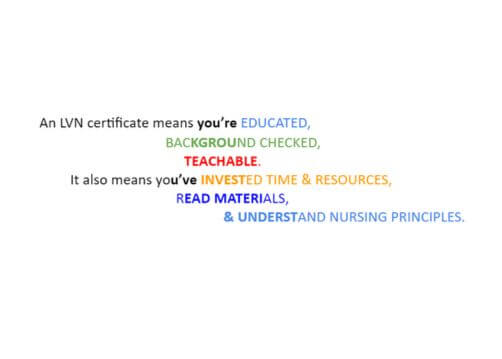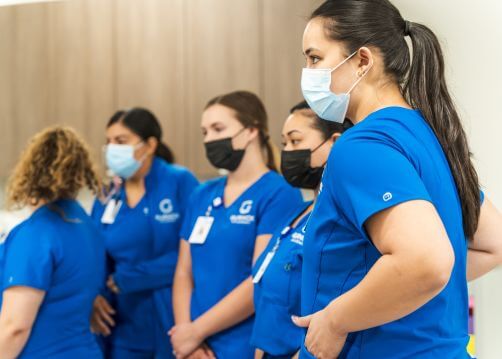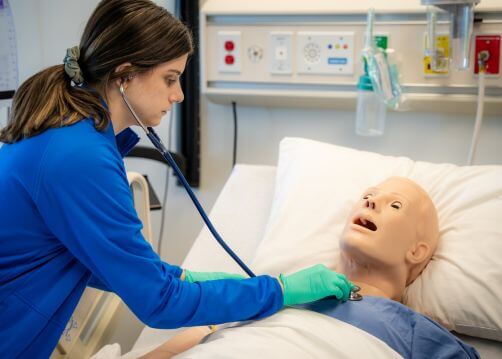The LVN Career – A Licensed Occupation Worth Pursuing
Date: March 11, 2019
Nursing can be quite a meaningful and satisfying career. Perhaps most importantly, there is no lack of employment opportunities in this profession, simply because of the ever-expanding need for health care services. Your advantage is giving thought toward a medical field career as a Licensed Vocational or a Licensed Professional Nurse.
Licensed nurses work directly under the supervision of an RN (Registered Nurse) or a physician. Your future LVN career starts by enrolling in an LVN school that offers training and helps you embark on the nursing profession.
With experience and proper schooling, you would pass the NCLEX-PN examination. Therefore, it is imperative to attend the LVN Program at a reputable institution that provides high-quality training. LVN Programs may take as many as four (4) semesters to complete, but some institutes offer accelerated programs without compromising the curriculum. Students from such academies have been successful, and many go on to have impressive and lucrative careers.
The LVN program provides insight and the technical competence needed to administer patient treatments, identify symptoms, and utilize diagnosis and treatment methods. Furthermore, leadership and supervision skills and a host of other learning types will hold the student in great stead while completing the required licensed nursing examinations.

Healthcare is a fast-growing profession, and the costs of healthcare are continually rising. These are two of the most significant factors in why the demand for nurses is increasing. As doctors spend less time with their patients, it has become the nurse’s role to act as a health educator and provide more direct care.
There is an estimated shortage of approximately 300,000 nurses worldwide, and it is a uniformly held view that this number will increase, widening the gap between supply and demand. This shortage is expected to triple in the next 15 years, mainly because many active nurses reach retirement age.
The good news for newer nursing candidates is that salaries have increased substantially. Medical facilities may offer different bonuses, such as sign-on bonuses, childcare assistance, housing assistance, elder care assistance, and even transportation stipends.
The demand for nurses with advanced education is the highest, and the best way to start your nursing education is to attend an LVN school, from which you can move on to being a Registered Nurse.
Responsibilities for the Licensed Vocational Nurse
LVN is an acronym used in Texas and California and stands for the Licensed Vocational Nurse. The responsibilities that come with this job vary from state to state. Generally, the purpose of LVN training is to provide individuals with knowledge and practice related to bedside nursing care.
An LVN’s scope of practice assists with daily living activities such as range of motion, dressing changes, inserting catheters, checking the patients’ vital signs, and administering medications. In some states, an LVN career also includes knowledge and practice in starting and hanging IVs and performing venipuncture for lab draws.

Vocational nurses are typically employed in hospitals, but they can also work in other facilities, such as physicians’ offices, skilled nursing facilities, clinics, schools, home health care agencies, and correctional facilities.
Becoming a licensed vocational nurse is not uncommon for people who wish to support themselves while pursuing an RN qualification. Some RN schools allow LVNs to challenge courses through examinations or offer course credits. The typical LVN school offers one-year courses of study.
In California, LVN training is available from numerous sources that provide education for the state licensing nursing exam. LVN CA training schools typically last for one year and provide participants with the necessary learning experience to achieve the goal of entering the world of vocational nursing.
LVN and Medical-Related Knowledge
During the LVN CA training programs, the future nurses will become familiarized with medical-related knowledge such as:
- The integumentary system
- The musculoskeletal system
- The respiratory system
- The cardiovascular system
- The gastrointestinal system
- The reproductive system
- The endocrine system
- Immunology
- Oncology
- Obstetrics
- Pediatrics
The aim of LVN education in general and the LVN CA training courses, in particular, is to assist individuals in pursuing their nursing careers by providing the skills and information necessary to pass the licensing nursing exam.




